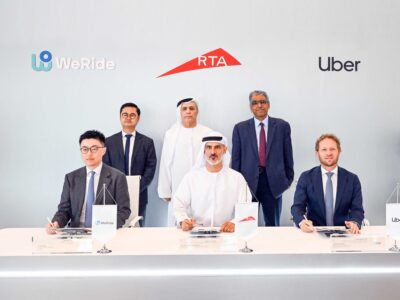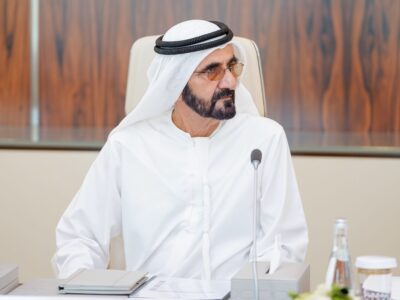Five grassroots projects that tackle coronavirus related challenges have been selected to join the 45 existing best practice projects that make up Expo 2020 Dubai’s Global Best Practice Programme.
The new initiatives include a wearable device from Belgium that produces a warning when social distancing is not respected and a Jordanian programme, SitatByoot which helped vulnerable communities, primarily women, grow online businesses during lockdown.
Also among the new initiatives is a UAE-based Project Maji, which devised the Maji Bucket, a low-tech and low-cost invention, produced by people of determination in Ghana, to ensure safe handwashing practices in rural communities and a Singaporean mobile-phone eLearning platform that provides training for frontline community health workers.
“The impact of major global challenges has made it very clear that, to build a better future, we must work together as a global community,” said Reem Al Hashimy, UAE Minister of State for International Cooperation, Director General of Expo 2020 Dubai and Chair of the UAE National Committee on Sustainable Development Goals.
 SafeDistance, Lopos, Belgium
SafeDistance, Lopos, Belgium
“Our expanded Global Best Practice Programme exemplifies Expo’s purpose to bring the world together, aligned with our theme of connecting minds, creating the future, to drive positive change and support projects from across the world that communities need now,” she continued.
These latest additions were announced as the United Nations marks World Creativity and Innovation Day on 21 April, celebrating human ingenuity and the creative economy, and their essential role in helping communities throughout the pandemic.
 ‘Mi Casa, Mi Cancha’, Fútbol Más, Chile
‘Mi Casa, Mi Cancha’, Fútbol Más, Chile
“These projects are providing tangible, life-changing solutions to the challenges brought on by the pandemic, and we are proud to showcase them at Expo 2020 Dubai – a one-of-a-kind global platform and an impactful incubator for new ideas,” said Al Hashimy.
The call for the Covid-19 related proposals began in September 2020 and Expo received applications from 318 projects across 78 different countries covering five focus areas which included digitalisation, education and skills development, health and wellbeing, water, sanitation and hygiene and protecting livelihoods.
 reach52, Singapore
reach52, Singapore
The projects were assessed by a jury that included the official digital network partner of Expo 2020 Cisco, the UAE-based global philanthropic organisation Dubai Cares and UN Habitat, the UN programme for human settlements and sustainable urban development.
Top submissions were then reviewed and signed off by the Bureau International des Expositions (BIE) and the University of Cambridge Institute for Sustainability Leadership.
 SitatByoot and Makesy, SitatByoot, Jordan
SitatByoot and Makesy, SitatByoot, Jordan
“World Expos excel as platforms for showcasing and sharing inspiring projects that bring real improvements to lives around the world,” said Dimitri S. Kerkentzes, secretary general of the BIE.
“The BIE enthusiastically endorses this timely Covid-19 edition of Expo 2020 Dubai’s Global Best Practice Programme, which gathers a series of innovative, inclusive and truly transformative solutions to the new challenges raised by the pandemic. By exchanging impactful solutions for people and the planet, we can address and overcome these challenges together,” he added.
 Maji Bucket, Project Maji, UAE (Ghana)
Maji Bucket, Project Maji, UAE (Ghana)
Launched in 2018 under the theme Small Steps, Big Leaps: Simple Solutions for Sustainable Impact, the Global Best Practice Programme honours a 2010 BIE mandate for all World Expos to spotlight solutions that can be replicated, adapted and scaled for greater global impact, highlighting World Expos as powerful platforms for inspiring change and driving human progress.
Expo 2020 Dubai will be taking place from 1 October 2021 to 31 March 2022.





